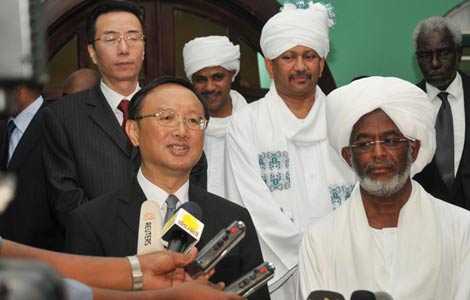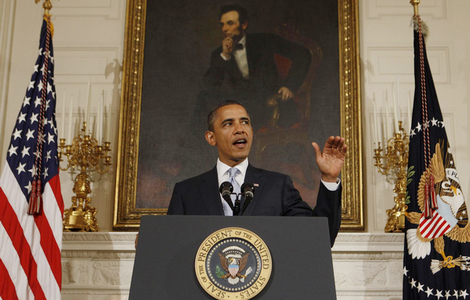Red Cross questioned over luxury vehicles
Updated: 2011-08-10 08:14
By Zheng Jinran (China Daily)
|
|||||||||||
BEIJING - The top charity in China denied on Monday that officials at the organization use cars that are too extravagant for government standards, saying such claims are "nothing but rumors".
"A well-informed person disclosed yesterday that several luxury government vehicles are being parked in the garage of the Red Cross Society of China," said a recent micro blog post written by Wu Chenguang, deputy editor-in-chief of Blog Weekly, a popular Chinese magazine.
"Every official of or above the society's department level has two luxury government cars at his disposal," Wu went on. "This source said the policy (of allocating two cars to every senior society official) comes in response to the Beijing government's even-odd license plate rule and I believe what he's saying is true."
Wu's post immediately drew attention from the public and the media. Both have been keeping a close eye on the Red Cross Society of China after the organization was hit by a succession of finance scandals that have left it struggling to regain the public's trust.
"A retired journalist who is one of my friends from Southern Weekly got this information from an insider in the Red Cross Society," Wu told China Daily on Tuesday. "My friend didn't have a micro blog account, so I posted it on the Internet for him.
"Although I didn't dig more into it, I thought the possibility that it is true probably surpasses 50 percent."
Asked about such criticisms, the Red Cross declined to comment.
"Every leader at the vice-ministerial level, both those who are serving and those retired, has a car exclusively to himself," the Red Cross Society of China said in an e-mail sent to China Daily on Tuesday.
"Other leaders also have one government car each, which they can use whenever they want. All these vehicles were allotted through the Government Offices Administration of the State Council."
Most of the e-mail's contents were similar to what was said in an online statement made on Monday by Ding Shuo, an official in charge of policy implementation and legal affairs for the society.
Ding said the society has spent 411,600 yuan ($64,000) on official vehicles this year, giving no further details.
According to the announcement on Tuesday, the Red Cross Society of China has 15 official vehicles. That number is precisely in keeping with the standards set by the Government Offices Administration of the State Council, which oversees the purchase and use of the vehicles by central government departments.
Asked to provide more details about the cars, such as what models they are or what numbers they have on their license plates, the society declined. It also would not say how much it spent to buy and maintain vehicles in recent years.
"I once gave about 2,000 yuan through the society about two years ago, when I still trusted the organization," Wu said. "I wanted to know where were my money was going."
He said if the Red Cross Society of China can provide solid evidence showing it doesn't misuse official cars, "I would like to apologize to them and do every thing that I can to help them clarify the situation. But that's only if they can provide the proof."
The Red Cross Society of China has recently been the subject of a series of scandals. The most notorious stemmed from the actions of Guo Meimei, a 20-year-old woman claiming a business connection with the society, who boasted online of leading a lavish life. And another scandal surfaced after false information was put on the Red Cross' website.
"The Red Cross Society of China is under the spotlight, and has faced much public criticism lately," said Wang Zhenyao, former director of the Ministry of Civil Affairs' social welfare and charities department. "At the core of the problem is a lack of transparency.
"The officials in that organization should change their minds as soon as possible, accept supervision from the public and set up a system to make all of the donations they receive and their assets transparent."
Related Stories
Red Cross working for transparency 2011-08-03 07:50
China's Red Cross responds to critics 2011-08-02 06:07
Red Cross opens online platform to track donations 2011-08-01 08:17
Red Cross discloses donation info online 2011-07-31 19:19
China Red Cross: No official being probed for corruption 2011-07-30 22:42
Red Cross trying to ease trust crisis on microblog 2011-07-06 06:12
Hot Topics
Anti-Gay, Giant Panda, Subway, High Speed Train, Coal Mine, High Temperature, Rainstorm, Sino-US, Oil Spill, Zhu Min
Editor's Picks

|

|

|

|

|

|







